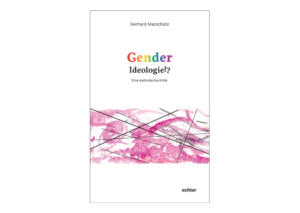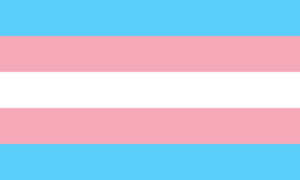
A wicked perspective on Butler’s „Frames of War. When Is Life Grievable?“
The new contribution of Tristan Genoske engages with the movie Wicked, in particular with the often overlooked song „No one mourns the wicked“. Yet its message is among the strongest. Was a life that no one mourned ever lived? Are there mechanisms of power that prevent us from mourning the dead? Who is wicked in our society and are we grieving them? Starting with Judith Butler’s text „Frames of War. When Is Life Grievable?“, the contribution tries to answer to these questions examining what is happening in Oz.

More Men, More Toxic Theology? Critical Questions on Being the Church from a Gen Z Theologian
In his article, J. J. Warren describes how the ever-increasing role of Generation Z in American society is causing fundamental shifts in the faith landscape, which also brings with it dangers for all those who are committed to an egalitarian church.

Menschenwürde auf katholisch
In der im April 2024 veröffentlichten Erklärung „Dignitas infinita“ wurde die aktuelle Position der Katholischen Kirche zum Thema Menschenwürde dargelegt. Gerhard Marschütz zeigt in seinem Beitrag, dass dieser Auffassung ein essenzialistisch-naturalistisches Menschenbild zugrunde liegt, das – insbesondere in Bezug auf die Rechte von LGBTIQ-Personen – einem modernen Verständnis von Menschenrechten nicht gerecht werden kann.

Religion, Kunst, Protest – Versuch einer Kontextualisierung der Ereignisse rund um die Zerstörung der Linzer Marienskulptur
Die Ereignisse rund um die Zerstörung der Skulptur „Crowning“ der Künstlerin Esther Strauß haben österreichweit und darüber hinaus hohe Wellen geschlagen. Der erschreckend frauenfeindliche Vandalismus – die Skulptur wurde drei Tage nach Ausstellungseröffnung von einem bislang unbekannten Täter geköpft, der Kopf gestohlen – wirft viele Fragen auf. Katharina Limacher und Jakob Deibl gehen in ihrem Beitrag einigen dieser Fragen nach.

Holy Mother as a Feminist Symbol: The Virgen de Guadalupe in the Modern Women’s Movement
In her contribution, Hannah Pale introduces the Chicanas movement, founded by women of Mexican descent in the USA, who defend themselves against their double oppression and exploitation as Mexicans and women with their subversive feminist reinterpretation of the saintly figure of the Virgen de Guadalupe.

Gender-Affirming Surgery as a Liberation of the Self
At the end of last year, the conference of the Association of Bioethicists in Central Europe (BCE), with a focus on the topic of gender-affirming surgery took place in Vienna. In his contribution, Paul Draganoff reflects onthe different perspectives that need to be taken into account to properly understand the phenomenon and closes with a look at the current state of the theological debate on the issue.

God’s Pronouns? Displacing Hegemonic Masculinity within Theological Scholarship through a Diversity of Language, Imagery, and Symbols
Drawing on two case studies, a Facebook post from the University of Vienna and Harmonia Rosales‘ The Creation of God, J.J. Warren shows how it is necessary to take a critical stance against the strictly binary and hegemonically masculinist idea of God. For this reason, Warren illustrates how a Critical Re-Imagining is necessary. He takes as his point of departure the apophatic tradition and the Catholic theologian Elisabeth Johnson, who argues that the naming of God in many genres is necessary and healthy for the whole life of the church.

Wenn es in der Schublade rumpelt: Neue Gespräche mit Frauen über den Hijab
Für Empathie, gegen Vorurteile, werben Jessica El Menshawi und Helena de Anta im Diskurs über den Hijab, den islamischen Schleier. Und sprechen dazu mit denen, die ihn tragen und trugen: 23 Frauen quer aus Europa und dem Nahen Osten, aus, Kairo und Bern, Mösslingen und Nursultan. Eine Buchrezension von Dominik Drexel.

Doomed to Sacrifice? Existential and Phenomenological Perspectives on Sacrifice and Gender
International Workshop 28–29 October 2021 at the Institute for Human Sciences, organised within the FWF Research Project M2947-G “Woman without a Name: Gender Identity in Sacrificial Stories” and co-organised by the Research Centre for Religion and Transformation. A report by Katerina Koci.
Muslimische Influencer*innen
Rüdiger Lohlker beleuchtet ein noch wenig beforschtes globales Phänomen, das sich zwischen Ökonomie, Ästhetik, Politik und Religion aufspannt.